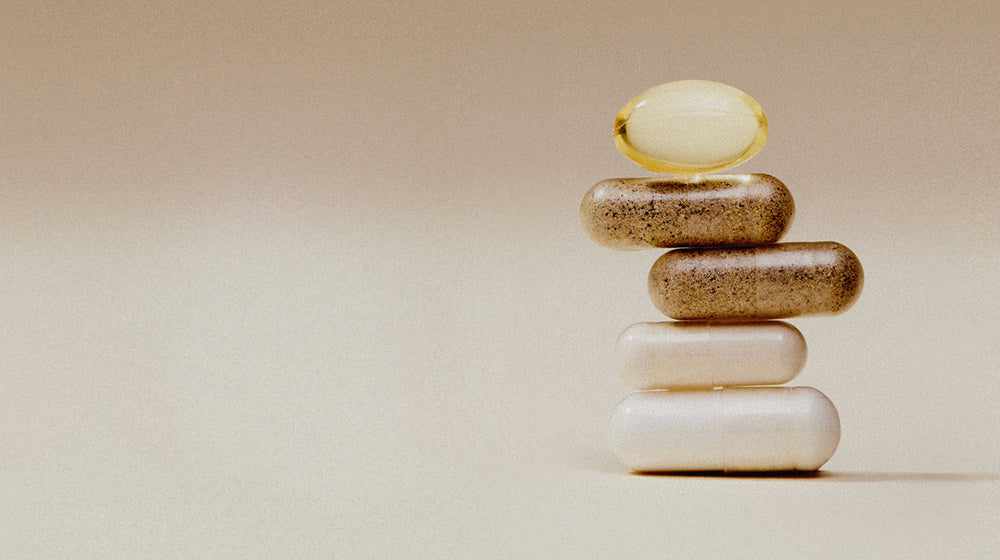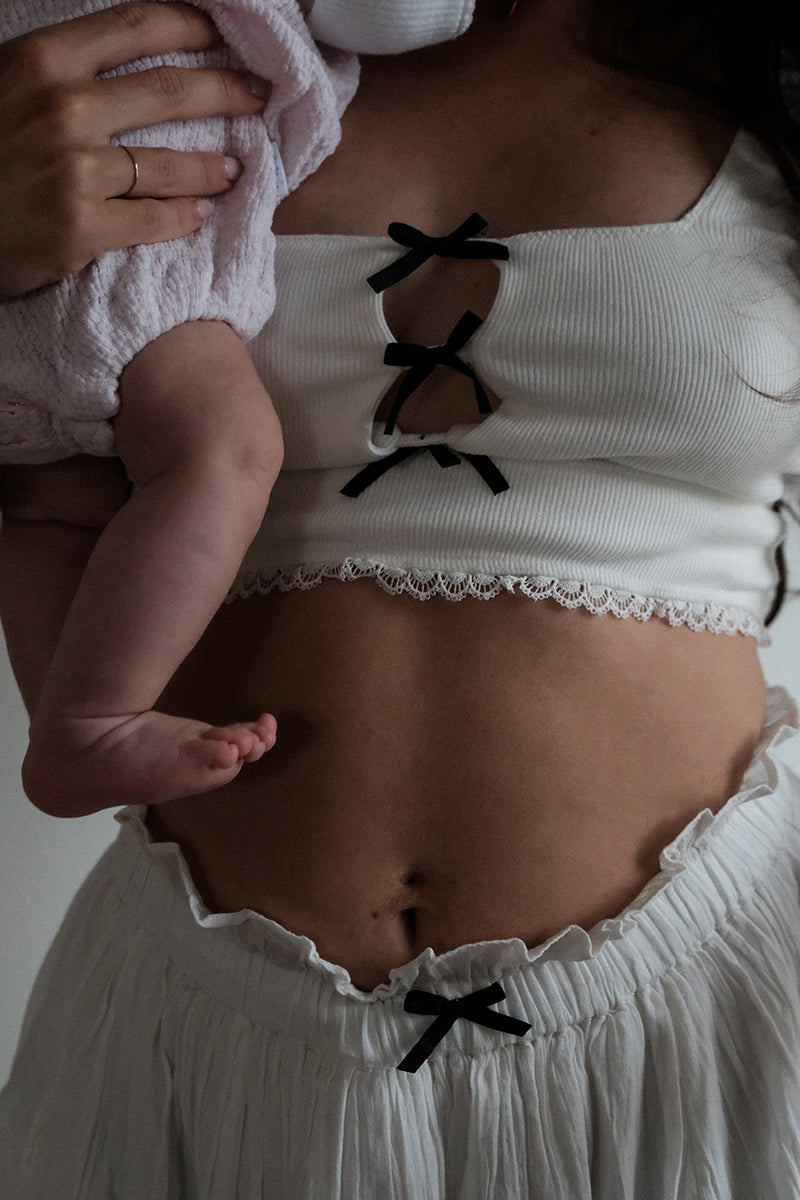After giving birth, it’s common to feel a swirl of emotions and exhaustion—after all, your body just went through a huge transformation, your hormone levels are ebbing and flowing, you’re likely experiencing a severe lack of sleep, and you’re now in the thick of a completely new chapter. It’s common to experience anxiety, postpartum depression, and fatigue—in fact, 70 to 80 percent of women report experiencing “baby blues” in the days following birth.1
It doesn’t help that Western culture tends to celebrate “bouncing back” from pregnancy—which can certainly make it feel tougher to ask for help as a new mom. But what if we followed the lead of Traditional Chinese Medicine, or TCM, which sees the postpartum period as one of the most crucial moments of self-care in a woman’s lifecycle?
Below, we go deeper on common postpartum symptoms—and the best way to manage hormonal changes and your mental health through the lens of TCM.
$49.95
$32.95
$46.95
Shop the Article:

Mom Multi Support Pack
/ Month
Shop Now

Sleep Support*
/ Month
Shop Now

Cellular Hydration Powder
/ Month
Shop Now
First, a quick rundown on postpartum hormones:
Our hormones shift radically throughout pregnancy—by the third trimester, our estrogen and progesterone levels peak at about 6 times their pre-pregnancy levels. But what goes up must come down, and these pregnancy hormone levels fall immediately after giving birth (in fact, this hormonal change helps facilitate the production of colostrum and breastmilk). Meanwhile, the hormones prolactin and oxytocin stay elevated to support breastfeeding and bonding with baby.
With this swirl of hormonal changes, it’s no wonder our emotions feel heightened—and those feelings can last for a couple of weeks postpartum. That said, if you’re feeling particularly low, or find that these emotions aren’t going away, it’s best to get support from a professional.
Every person is different—but here are some general symptoms that would be associated with each imbalance, according to TCM.
- Depression, fatigue, mild anxiety, insomnia, palpitations, poor memory, and a decline in libido are linked to Heart Blood Deficiency2.
- Depression, exhaustion, restlessness, and waking up multiple times during sleep, palpitations, night sweating and feeling warm at night, low breast milk production, and a decline in libido are linked to Heart Yin Deficiency.
-
Depression with destructive manic and aggressive behavior is linked to Heart Blood Stasis. This is a severe case of postpartum depression and you should contact your obstetrician or a psychologist immediately if you’re experiencing these symptoms. 3
- Depression, shortness of breath, palpitations, low appetite, restlessness or dream-disturbed sleep, and forgetfulness are linked to Heart and Spleen Yang Deficiency.
- Impatience, irritability, insomnia, anxiety, agitation, dizziness, headache, low appetite, nausea, and belching are linked to Stagnation of Liver Qi and Fire Rising. 4
Do any of these symptoms or hormonal imbalances resonate with you? According to TCM, there are lifestyle adjustments you can start incorporating the month after your delivery to help your body replenish its blood, yin, and qi and manage the hormonal shifts that are occurring at this time.
How to Balance Your Hormones Postpartum, According to an Acupuncturist
- Add nourishing foods that are known to help build blood and qi to your diet. Those include beetroot, dark leafy greens, avocados, dates, sesame seeds, eggs, meat, yams, mushrooms, ginger, nutmeg, rosemary, and other herbs and spices.
- Eat primarily warm or cooked foods since it’s easier on the digestive system. I recommend bone broth, healthy fats like grass-fed butter and oils (olive, avocado, sesame, and coconut), room-temperature smoothies with superfoods like maca and spirulina, congee rice porridge, grain bowls with eggs, meat and cooked vegetables, and nut and seed butter.
- Sip on teas made with goji berries, cinnamon sticks, turmeric, fresh ginger, fennel seeds, raspberry leaf, and red dates.
- Keep your body warm by staying away from cold or raw foods and chilly drafts.
- Ask for support and help from your friends and family. Give them specific instructions on what kind of help you need and how they can provide it for you.
- Be okay with going inward for a while and set boundaries with visitors if you feel like this is depleting your energy rather than boosting it.
- Stay hydrated with room temperature or warm water. I recommended at least two liters of water per day as this is essential for breast milk production if you are breastfeeding.
- Rest as much as possible, whenever you can. 5
Plus, replenish your body postpartum with our OB/GYN-formulated Mom Multi Support Pack.

theFolio in Your Inbox
Sign up to receive doctor-backed, stage-specific content in your inbox each week.
1 The baby blues | American pregnancy association. Americanpregnancy.org.
2 CAc(Nanjing), M. G. (2011). Obstetrics and Gynecology in Chinese Medicine (2nd ed.). Churchill Livingstone.
3 United States | postpartum Support International (PSI). Postpartum.net.
4 Betts, D., Deadman, P., & Heese, I. (2006). The essential guide to acupuncture in pregnancy & childbirth. Hove, East Sussex, England: Journal of Chinese Medicine.
5 Ou, H., Greeven, A., & Belger, M. (2016).
This article is for informational purposes only. It is not, nor is it intended to be, a substitute for professional medical advice, diagnosis, or treatment and we recommend that you always consult with your healthcare provider. To the extent that this article features the advice of physicians or medical practitioners, the views expressed are the views of the cited expert and do not necessarily represent the views of Perelel.


















